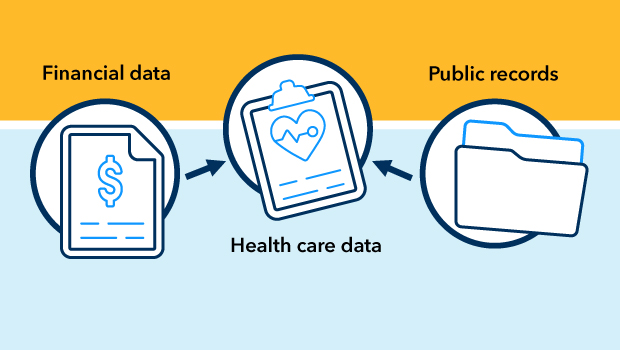Linking financial and public records with health care data to help predict suicide risk

New study reveals people find linkage acceptable if data is protected
A new study from Kaiser Permanente Washington Health Research Institute (KPWHRI) found that most people surveyed were willing to have their credit and public records data linked to their health care records if conditions are in place to protect privacy and autonomy. Linking this data may improve the accuracy of machine learning models designed to predict suicide risk.
“Individual information about life events such as bankruptcy, foreclosure, and divorce might improve our ability to predict who is at risk of making a suicide attempt,” said Rob Penfold, PhD, the study’s lead author and a senior investigator at KPWHRI. “Such information is routinely collected by credit bureaus and could be linked to health care records. But previously little was known about whether people find this data linkage acceptable.”
The purpose of this study, published in JAMIA Open, was to elicit the opinions and preferences of Kaiser Permanente Washington members regarding the linkage of external data sources to health care records for improving suicide risk prediction and alerting clinicians or others regarding potential risk.
The researchers asked 7,720 Kaiser Permanente Washington members to complete a survey, and 743 people responded. The survey assessed their willingness to provide data on negative life events (NLEs) — such as bankruptcy, foreclosure, divorce, and criminal arrest — for inclusion in a machine learning model that predicts suicide risk within 90 days of a health care visit.
Among the people who completed the survey, 65.1% were willing to link their data, while 34.9% preferred to keep their data private. Interestingly, individuals who reported experience of NLEs — such as significant financial setbacks — were more likely to be willing to link their data, not less. People of color were also more likely to be open to having their data linked.
Trust in Kaiser Permanente Washington to safeguard data emerged as the strongest predictor of willingness to link data. The researchers emphasized the importance of implementing conditions to protect privacy and autonomy, which were crucial for gaining participants' trust and willingness to link their data.
Prediction models are already part of routine suicide prevention in health systems such as Kaiser Permanente Washington. “Currently about 1 in 5 suicide attempts is made by individuals with low predicted risk, using models relying on health care data without NLE data,” said Penfold. “By incorporating NLE data, the predictive accuracy of these models could be improved, enabling earlier and more targeted suicide prevention programs.”
This study was funded by the National Institute of Mental Health.
KPWHRI coauthors are Rob Penfold, PhD; Julie Richards, PhD; Eric Johnson, MS; Chester Pabiniak, MS; Anne Renz, MPH; and Gregory Simon, MD.
By Caroline Liou
Research

Suicide attempts decreased after adding suicide care to primary care
Safety planning and risk screening improved outcomes for adult patients.
New findings

Simpler models to identify suicide risk perform similarly to more complex ones
Models that are easier to explain, use could have better uptake in health care settings.



